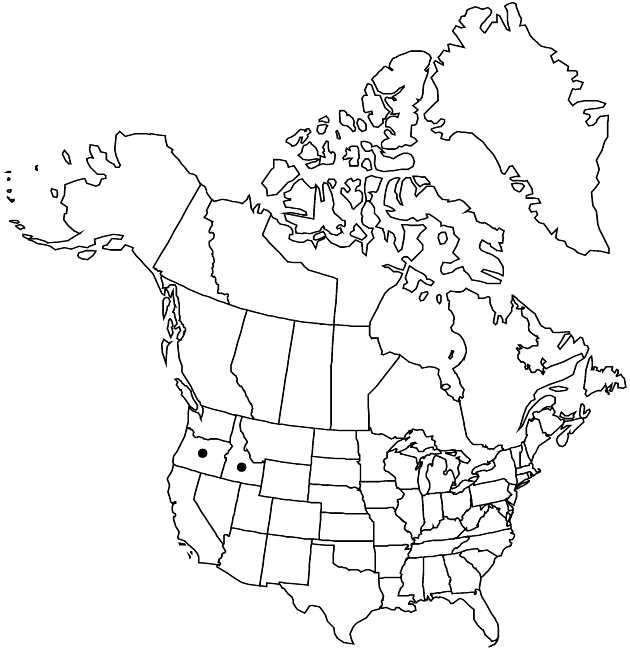Difference between revisions of "Chaenactis cusickii"
in A. Gray et al., Syn. Fl. N. Amer. ed. 2. 1(2): 452. 1886.
imported>Volume Importer |
imported>Volume Importer |
||
| Line 1: | Line 1: | ||
{{Treatment/ID | {{Treatment/ID | ||
|accepted_name=Chaenactis cusickii | |accepted_name=Chaenactis cusickii | ||
| − | |accepted_authority=A. Gray | + | |accepted_authority=A. Gray |
|publications={{Treatment/Publication | |publications={{Treatment/Publication | ||
|title=in A. Gray et al., Syn. Fl. N. Amer. ed. | |title=in A. Gray et al., Syn. Fl. N. Amer. ed. | ||
| Line 44: | Line 44: | ||
-->{{#Taxon: | -->{{#Taxon: | ||
name=Chaenactis cusickii | name=Chaenactis cusickii | ||
| − | |authority=A. Gray | + | |authority=A. Gray |
|rank=species | |rank=species | ||
|parent rank=section | |parent rank=section | ||
| Line 58: | Line 58: | ||
|publication year=1886 | |publication year=1886 | ||
|special status=Endemic;Conservation concern | |special status=Endemic;Conservation concern | ||
| − | |source xml=https:// | + | |source xml=https://bitbucket.org/aafc-mbb/fna-data-curation/src/2e0870ddd59836b60bcf96646a41e87ea5a5943a/coarse_grained_fna_xml/V19-20-21/V21_1028.xml |
|tribe=Asteraceae tribe Heliantheae | |tribe=Asteraceae tribe Heliantheae | ||
|subtribe=Asteraceae (tribe Heliantheae) subtribe Chaenactidinae | |subtribe=Asteraceae (tribe Heliantheae) subtribe Chaenactidinae | ||
Latest revision as of 20:07, 5 November 2020
Plants 3.5–10(–15) cm; proximal indument grayish, sparsely arachnoid, glabrescent. Stems mostly 1–5; branches mainly proximal. Leaves basal (withering) and cauline (not notably smaller or sparser distally), 1–4 cm; largest blades ± oblanceolate, plane, ± succulent, not lobed (margins entire or distally ± crenate). Heads mostly 1–5(–12) per stem. Peduncles 0.5–2.5 cm, glabrescent distally (sparsely arachnoid early; bracts 1–2, leaflike, surpassing heads). Involucres ± hemispheric to campanulate. Phyllaries: longest 6–9(–10) mm (surpassed by florets); outer (uniformly) sparsely arachnoid to glabrescent in fruit, not stipitate-glandular (inner apically brownish-villosulous), apices usually erect, blunt, ± rigid. Florets: corollas (diurnal) white to pinkish, 3–7 mm (± equaling cypselae; anthers exserted); peripheral corollas ± erect, actinomorphic, scarcely enlarged. Cypselae 4–6 mm; pappi of (8–)10–14 scales in 2–3 gradually unequal series, longest scales 1.5–3.5 mm. 2n = 12.
Phenology: Flowering late Apr–Jun.
Habitat: Light-colored shrink-swell clay soils from volcanic ash and tuff, semiarid shrublands
Elevation: 700–1300(–1800) m
Discussion
Of conservation concern.
Chaenactis cusickii is known from Malheur County, Oregon, and adjacent Owyhee and Canyon counties, Idaho. Its relationship to other species is obscure.
